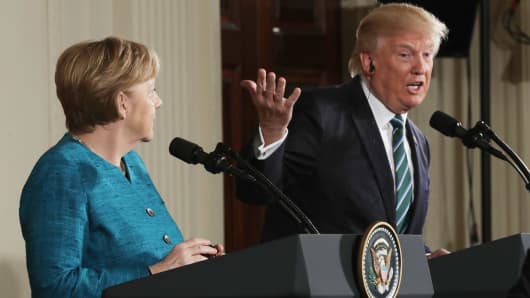Donald Trump wasted little time Friday warning German Chancellor Angela Merkel that trade relations with one of America's biggest export markets may be up for review.
"Germany has done very well in its trade deals with the U.S., and I give them credit for it," Trump told a White House press conference. "Virtually any country we do business with — it's not exactly good for our workers."
"The U.S. has been treated unfairly and that's going to stop," he told reporters.
In fact, the U.S. has no direct, bilateral trade deals with Germany. As Merkel quickly pointed out, Germany's trade with the U.S. is governed by rules negotiated by the European Union on behalf of member states.
If it were a single trade partner, Germany would be the fifth largest in total trade flows with the U.S. But it runs the third largest trade surplus, after China and Japan.
Last year, the U.S. shipped nearly $50 billion worth of goods to Germany and bought more than $114 billion in return, creating a trade deficit of nearly $65 billion.
That compares with a trade deficit of $69 billion with Japan and nearly $350 billion with China.



